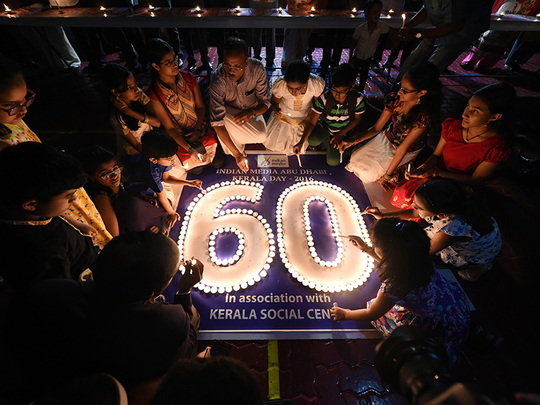
Thiruvananthapuram: A good seven centuries ago, Venetian traveller Marco Polo is said to have remarked, “this is a very different place”, about Kerala, known better as the Malabar Coast in those days.
On its 60th formation day on Tuesday, the state seemed to underline that very line, shining as a beacon in areas like literacy, global outlook and life expectancy, while also dragging itself through a shocking disregard for the environment, lack of elder care, and continued reliance on the outside world for jobs.
Keeping to the Keralite character of behaving as global citizens, the state’s legislators also referred to events in and outside the state that shaped Kerala’s past and present, in the state assembly on Tuesday.
Chief minister Pinarayi Vijayan reminded fellow lawmakers that the state owed its formation to Telugu freedom fighter Potti Sreeramulu, the staunchest advocate in the 1940s and 1950s for the formation of states based on language, and gave up his life while fasting for that cause.
Opposition leader Ramesh Chennithala said Keralites had proven themselves to be global citizens, competent to make a living or build a career in any corner of the world. He said Keralites, who had reached European standards in the areas of health, education and life expectancy, should take guard against the spread of communalism and political violence.
Much like Marco Polo seven centuries ago, Chennithala also indirectly said Kerala was a very different place, stating that while Kerala supposedly had a high level of unemployment, the state was flooded with labour from other states, estimated at nearly 2 million. That figure more or less matches the number of expatriate Keralites working abroad.
Over the sixty years, Kerala experienced the entire spectrum of political ideologies from socialism to communism, and of late, a rise of the Bharatiya Janata Party. It has also been a fertile ground for coalition governments ever since splinter parties began consistently winning a few crucial seats, making them valuable in the political mathematics of government formation.
The decentralisation of governance from the early 1990s was a landmark change for the state, while the establishment of the Technopark around the same time led to a new technology culture in the state much before other Indian states conceived technology parks.
From the 1990s, Kerala also emerged as a global tourism brand, riding on the tagline of ‘God’s own country’. However, environmental degradation is now threatening to hurt that sector.
On the farms, meanwhile, a stringent opposition to mechanisation led to a drop in output, efficiency and even area under cultivation. An entire generation that followed turned away from farming, which also led to a boom in higher education institutions whose quality remains questionable.
For all the achievements, two issues that are in the news at the moment are stark reminders of the challenges that the state continues to face: Despite boasting of 44 rivers, unregulated exploitation of water resources has led to the state being declared drought-hit, and for all its tall claims about being an informed society, journalists in the state are presently kept out of courts by lawyers.












